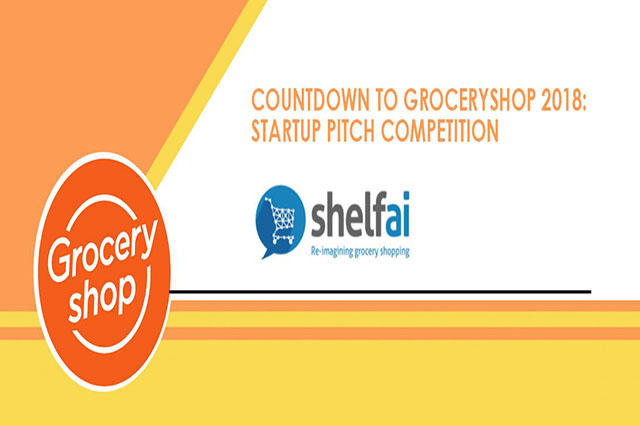Groceryshop 2018
The Coresight Research team will be attending and participating in the Groceryshop 2018 conference, which runs October 28–31 in Las Vegas. The team behind the Shoptalk retail and e-commerce conference founded this new event, which will cover the disruption of the grocery, CPG and related industries. Coresight Research has previously partnered with Shoptalk to host that conference’s annual startup pitch competition.
Groceryshop is expected to bring together 1,000 attendees and more than 150 speakers. Discussion topics will include the transformation of the retail industry, including convenience stores, supermarkets and e-commerce, and changes in the production and distribution of CPGs across multiple retail verticals. Additionally, the event will cover the rapid shifts in how consumers discover, shop and buy—from the use of new technologies and business models to the latest trends in consumer behaviors, preferences and expectations.
According to Zia Daniell Wigder, Cofounder of Groceryshop and Chief Content Officer of Shoptalk, Groceryshop was created to meet the needs of a sector on the verge of a massive shift. The percentage of grocery sales made online in the US is only 2%–3%, significantly lower than for other categories such as apparel and electronics, where e-commerce accounts for about 20% of sales, Wigder said.
Over the next few years, new omnichannel grocery offerings will likely go mainstream, providing consumers with new experiences as well as more convenient delivery and pickup options. Digital platforms that offer the best mix of price, selection and convenience will see increased transaction volume, while physical stores will experience change and likely play a key role in online order fulfillment.
Startup Pitch Competition
On October 28, Coresight Research CEO and Founder Deborah Weinswig will emcee a startup pitch competition featuring 12 innovative, early-stage technology companies that provide solutions to solve major problems in e-commerce, grocery retail, and/or the food or CPG sector.
Each company will present its business to a panel of judges from the investment community and to the audience. Two winners will be announced, one chosen by the panel of judges and one by audience vote, and each winner will be awarded $10,000.
Groceryshop curated the participating startups based on their solutions to some of the most pressing challenges that grocery, e-commerce, food and CPG companies are facing. All of the participating startups have less than $3 million in funding, provide business-to-business (B2B) solutions and were founded in 2014 or later.
We categorized the 12 companies into four buckets of retail disruption:
- Sourcing, Merchandising and Cataloging: Shoppers are demanding more grocery choices than ever before, and grocery retailers face challenges in keeping their assortments up to date and in sync with consumer demand.
- Enabling Grocery E-Commerce: Providing engaging and personalized online experiences while meeting consumer expectations regarding fulfillment and delivery is crucial for retailers.
- Improved Shopping Experiences: Shoppers are demanding intuitive and more seamless grocery experiences both online and in stores.
- Tracking, Measurement and Insights: Digital technology is creating new metrics and capabilities for gleaning insights for grocery retailers and CPG manufacturers.
Below, we profile Shelf.ai, one of the companies participating in the startup pitch competition at Groceryshop. We categorize Shelf.ai as being in the Improved Shopping Experiences group.
Shelf.ai

Company Description
Shelf.ai provides retailers with conversational commerce capabilities that are optimized for grocery. The company’s multimodal, device-agnostic, conversational e-commerce platform helps grocery retailers take advantage of voice assistants such as Amazon Alexa and Google Home to offer shoppers a personalized, multichannel shopping experience.
Retailers can connect their existing e-commerce and loyalty systems with Shelf.ai’s artificial intelligence system. The company’s solution uses customer purchase history and contextual knowledge to learn a shopper’s behavior and preferences, helping eliminate the need for the shopper to specify what kind of “milk” or “eggs” he or she might want when placing an order.
Market Overview
Although voice shopping is still in its nascent days, millions of users are buying smart speaker devices and starting to search for products using voice assistants. Voice shopping is expected to account for $40 billion in sales by 2022, up from $2 billion today, according to data from OC&C Strategy Consultants. In addition, online grocery shopper numbers have more than doubled in a little over a year, according to a study by the Food Marketing Institute and Nielsen. Voice-based commerce is shaping up to be the next major disruptive force in retail.
What Problem Is the Company Solving?
Voice commerce offers a unique opportunity for businesses to deliver faster, easier and more convenient experiences. To capitalize on the opportunity, retailers should begin designing strategies to add voice-shopping capabilities to their e-commerce programs.
Consumers are already demanding a personalized, simplified shopping experience, and retailers are working to deliver it both online and in stores. With the right strategy in place, voice shopping will fit naturally within a retailer’s overall omnichannel approach.
Headquarters
Porto, Portugal
Funding Stage
$700,000 in public funding and seed capital
Business Model
Shelf.ai offers SaaS and licensing models, either on premises or via the cloud.
Management Team
Founder and CEO Silvio Macedo has participated in several EU R&D projects and has provided consulting services to companies that include the BBC and Rolls-Royce. He has managed and founded five companies, including Xarevision and Shelf.ai, and has spent the last 12 years working on technology for grocery retail.
Company Outlook
Shelf.ai has launched its platform at a retailer with $7 billion in annual sales. Shelf.ai aims to become the market leader in conversational commerce in Europe and the US within the next two years.

